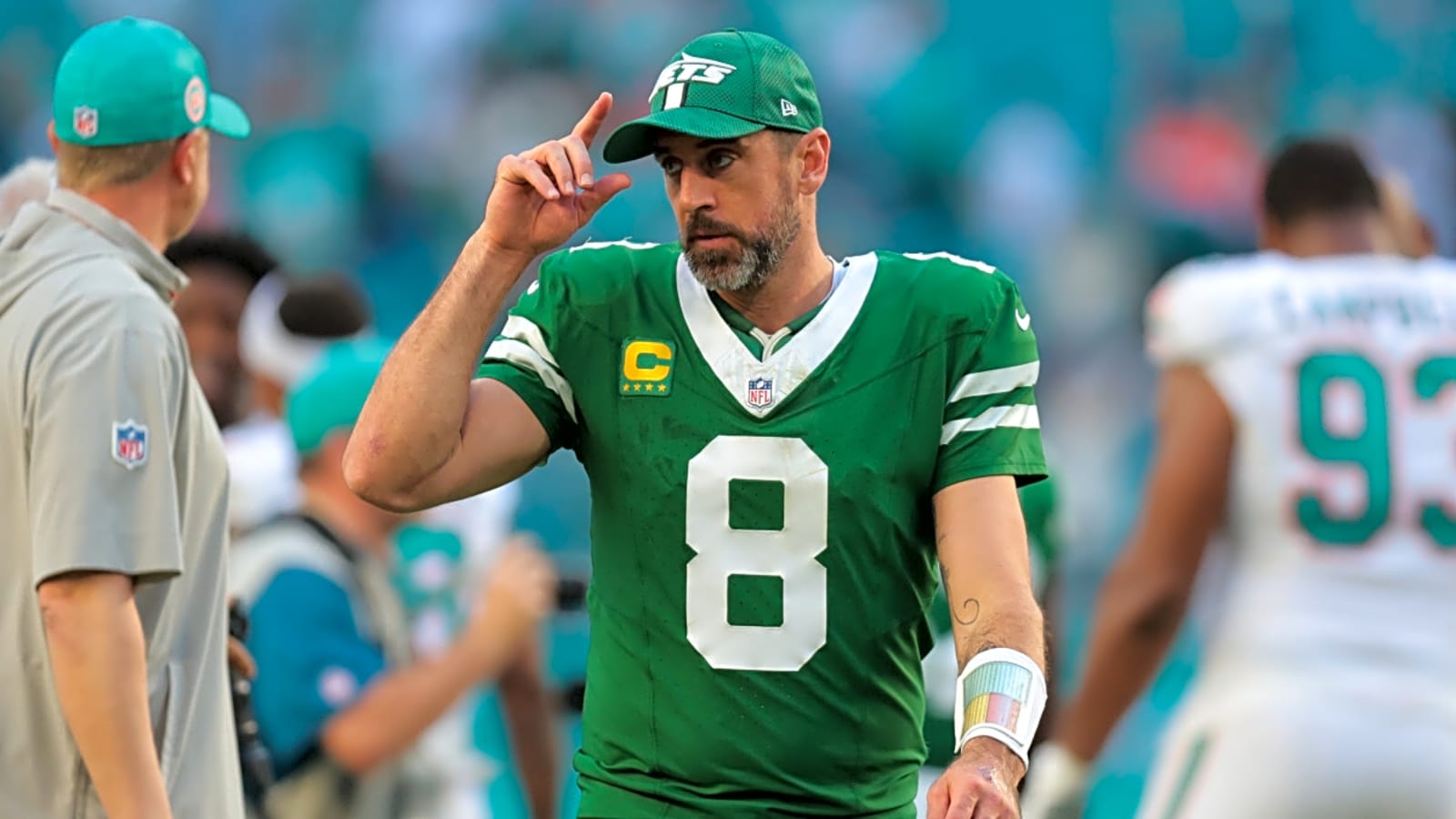The biggest decisions of the New York Jets' offseason revolved around hiring the right leaders to bring about the next era of football in East Rutherford. For head coach Aaron Glenn and general manager Darren Mougey, tasked with changing the fortunes of New York, the first order of business was deciding who would be under center.
Quickly, it became clear that quarterback Aaron Rodgers had run his course with the Jets. After a brief meeting, they made it clear that he would be released at the start of the new league year in March and head to free agency.
He was ultimately released with a post-June 1 designation, which spreads the dead cap of Rodgers’ deal across multiple seasons at the cost of delayed cap gratification. Mougey wouldn’t be able to access the cap space from Rodgers’ departure until June.
As summer approaches and the offseason continues, Rodgers’ cap relief has kicked in, making the Jets one of the biggest financial winners of the June 1 update.
According to Ari Meirov, releasing Rodgers and linebacker C.J. Mosley has netted New York $13.5 million in cap space.

The natural consequence of waiting until June for relief is that the bigger fish of free agency are gone. Rodgers, a favorite to join the Pittsburgh Steelers, is the most notable veteran still available. Just about everybody left has baggage regarding their age or medical history, preventing teams from going all-in, and nobody on the market is going to drastically change the outlook of a season.
The Jets are happy to accept those terms. This gives them the room to be flexible for the rest of the offseason, make a trade during the 2025 season if necessary, and enjoy the perks of the space rolling over into next season.
According to Over the Cap, New York has $36.8 million in cap space, the fourth most in the NFL behind only the New England Patriots, San Francisco 49ers, and Detroit Lions. It’s not particularly meaningful for the coming months, but it’s a sign that the team’s cap sheet is healthy and that Mougey has the resources he needs to be successful.
As for replacing Rodgers, the Jets turned to Justin Fields on a two-year, $40 million deal that ensures his spot as the starter in 2025. If he runs with the opportunity, his resurgence could lift New York back to relevance. If not, the team is flexible enough to find a passer in the 2026 NFL Draft.
It is yet to be seen how the Jets will use the extra cap space at their disposal.



-1754815147-q80.webp)